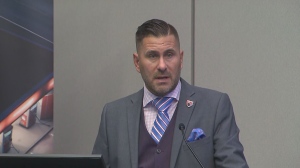Alberta Trans Youth Denied Gender-Affirming Care Despite Medical Recommendations
In a recent case that has sparked outrage and concern, a 14-year-old transgender youth in Alberta has been denied access to gender-affirming care by the province’s health care system. Despite recommendations from medical professionals, the youth’s request for hormone therapy has been denied, leaving them in a state of distress and uncertainty.
According to the youth’s mother, who wishes to remain anonymous to protect her child’s privacy, her child has been struggling with gender dysphoria since the age of 11. Gender dysphoria is a recognized medical condition where an individual experiences distress due to a mismatch between their gender identity and the sex they were assigned at birth. In this case, the youth identifies as male but was assigned female at birth.
After seeking help from a pediatrician and a psychologist, both of whom recommended hormone therapy as a form of gender-affirming care, the family submitted a request to Alberta Health Services (AHS) for coverage of the treatment. However, their request was denied, with AHS stating that the treatment was not medically necessary.
This decision has left the family feeling frustrated and helpless. The youth’s mother expressed her concerns, stating that her child’s mental health has been deteriorating due to the denial of care. She also highlighted the fact that hormone therapy is a widely accepted and recommended treatment for gender dysphoria, and denying it goes against the medical consensus.
In response to the outcry, AHS released a statement saying that they are committed to providing quality care to all Albertans, including those who identify as transgender. They also stated that they follow the World Professional Association for Transgender Health (WPATH) standards of care, which recommend hormone therapy as a treatment for gender dysphoria.
However, the statement also mentioned that AHS has a process in place for reviewing requests for gender-affirming care, and each case is assessed individually. This raises questions about the consistency and fairness of the decision-making process.
This case has shed light on the challenges faced by transgender individuals in accessing necessary medical care. It also highlights the need for a more comprehensive and inclusive approach to healthcare, where the needs and rights of all individuals are respected and prioritized.
In the meantime, the youth and their family are left in a state of limbo, unsure of when or if they will be able to access the care that has been recommended by medical professionals. This case serves as a reminder that there is still much work to be done in ensuring that all individuals, regardless of their gender identity, have equal access to quality healthcare.




